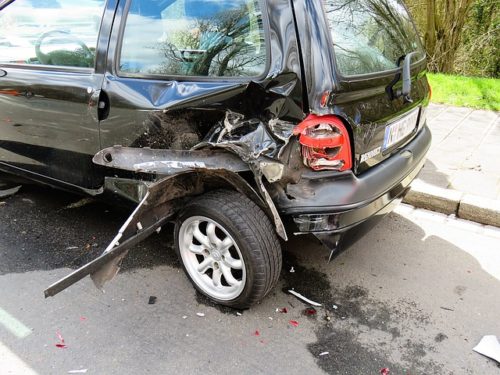
In the aftermath of an accident, you may be left without a usable car, or with one in dire need of repair. Who should pay for the car, for the rental, for the cell phone that was ruined in the accident? The short answer is that the insurance for the person who caused the accident should pay for all of those things, but the long answer of course is that nothing is that easy. Some of the issues involved in that discussion are condition of the car, total loss vs. repair, coverage available, and rental coverage.
How do I get a rental after an accident?
A rental is not automatic under Kentucky law. The at fault party is actually legally responsible for “loss of use” of the vehicle. If the car is not drivable after the accident, or not street legal–such as when tail lights don’t work–then you should get into a rental as soon as possible because you have already “lost the use” of the car. If your own insurance has rental coverage, you are entitled to that benefit right away. If you are going to go through the other driver’s insurance, they will typically give you a rental rather than pay for “loss of use”–but only after you have been able to obtain insurance information from the at fault driver or the police report to put them on notice and allow them to confirm their obligations. That process can take a few days.
Timing of a rental is a little different if the car is drivable and street legal after the accident, because the car is still “usable” and the at fault party does not owe you a rental until it is not usable. Loss of use claims are limited to the reasonable and necessary expenses for the time necessary to repair or replace the damaged vehicle. If the damaged car is still drivable, you do not usually obtain a rental car until the car is actually in the shop for repairs, because it is deemed usable up to that point. If your own insurance has rental coverage, you can use that right away, too, but that coverage typically has limits–as in up to $900 or up to 30 days–that make it wise to wait for repairs to be started as well.
What am I owed if my car can’t be repaired–and who decides if it is a “total loss”?
A car is deemed a “total loss” in Kentucky if it will cost more than 75% of the actual cash value of the car to repair it. In simple terms, if the car is worth $10,000, and the repair estimate comes in at $7,501, the car is a total loss, and the insurance company does not have to pay for repairs, even if you want it repaired. In that case, they will have to pay the actual cash value of the car–which is determined objectively through sales comparisons, market research, etc.
Total losses can be problematic for several reasons. Sometimes you may owe more than the car is worth. In that situation, the insurance company does not have pay off your loan, and instead they will just pay the lien holder the actual cash value of the car, which can leave you with debt and no car. You should check for “gap” coverage with your loan company if that happens. In other circumstances, the person who is at fault may not have enough insurance to cover your loss. Kentucky minimum coverage laws require a person to carry $10,000 in coverage. If your car is worth more than that, or if several cars are damaged by the at fault car, there may not be enough coverage to go around.
Using your own insurance can be a solution to some total loss problems, but that only works if you have the coverage for your vehicle, and if you are willing to be patient about your deductible. Coverage for a loss to your vehicle caused by another driver is not part of minimum legal coverage in Kentucky, so you may not have that coverage. And if you do have the optional coverage, most vehicle damage coverage in Kentucky will pay you actual cash value, less your deductible, which is often $500 or $1000. That means if your car is a total loss, worth $12,000, your insurance would pay you $12,000 minus your deductible of $1000, leaving you with $11,000. If the at fault driver only has $10,000 in coverage, you are better off taking that $11,000 from your insurance company, of course, and then pursuing the other driver for the deductible.
What about damage to other personal items?
A couple of other common damage issues in accidents are damages to personal items like cell phones and glasses, and damage to car seats. Who pays for those? If you are using your own insurance, and you do not have premium coverage for personal items, you are usually out of luck. If you are settling a damage claim with the at fault driver, however, and you have proof of damage to a cell phone or glasses, you should make that claim up front before you settle, because an expensive personal item like that should be covered and should not fall through the cracks.
In addition, after any accident where somebody is injured, we recommend replacement of car seats. The National Highway Transportation Safety Administration has recommended that child safety seats be replaced after any moderate to severe impact, and after minor impacts where any passenger has been injured. In accordance with that recommendation, most insurance companies recognize that car seats should be replaced after a crash, and you should ask the insurance company to replace your child’s car even if the child riding in the car seat was not injured.
If you have been involved in a car accident and need help contact the Kentucky accident attorneys at Lawville today!


